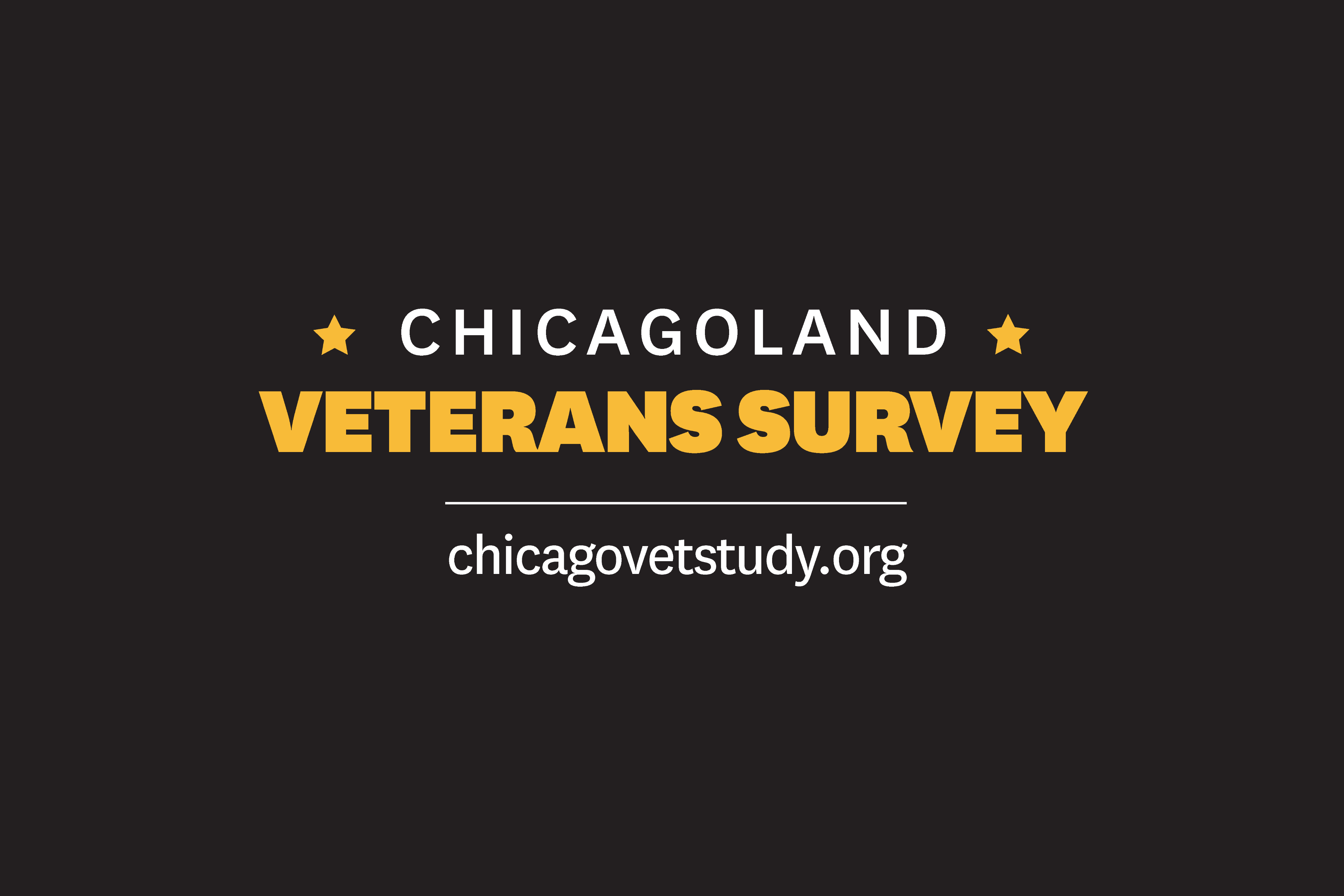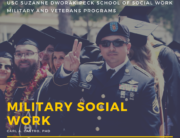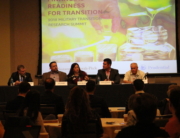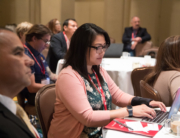New USC study identifies critical lack of housing and employment planning and opportunities, and heightened suicide risk
Many service members leaving the military and returning to the Chicagoland area are not prepared for the transition home and have a range of needs that cannot be easily addressed by a single organization, according to a new University of Southern California report released Tuesday. Among the research statistics were high rates of unemployment/underemployment, homelessness and suicide risk.
The State of the American Veteran: The Chicagoland Veterans Study by the USC School of Social Work Center for Innovation and Research on Veterans & Military Families, conducted in partnership with the Loyola University Chicago School of Social Work, outlines the findings of a survey conducted in summer 2015 of almost 1,300 veterans living in Cook, DuPage, Will and Lake counties.
The study found many veterans leave the military without having lined up some key elements that could complicate their transition home.
- About 61 percent of pre-9/11 and 65 percent of post-9/11 veterans left the military without a job, expecting to quickly find meaningful employment.
- About half of pre-9/11 and 42 percent of post-9/11 veterans left the military unsure of where they would be living.
- Many left active duty with untreated physical and mental health issues, which were higher among post-9/11 veterans. Among the most recent veteran population, nearly one in four veterans was at risk for suicide but did not seek help, compared to 11 percent of pre-9/11 veterans.
“The main thing we learned from this study is that many Chicagoland veterans were unprepared for their transition out of the military and subsequently are still facing significant challenges that impact their post-service well-being,” said Sara Kintzle, lead author and research assistant professor at the USC School of Social Work.
This first comprehensive study of the area’s military population, which also included follow-up focus groups with 20 veterans, explored numerous areas, such as transition challenges, life satisfaction, employment and finances, housing, health and access to veteran services. USC has conducted similar studies of veteran populations in Southern California in Los Angeles and Orange counties. While unique to the Chicago area, similarities among the findings point to a need for a larger, nationwide transition effort.
“Although veterans in each community have their own unique needs and experiences, we are seeing an overarching theme across the nation,” Kintzle said. “Veterans need support that includes preparing for military transition, managing expectations of post-service life, addressing challenges early, and creating communities that are ready to welcome veterans with a strong, connected network of support.”
The study found that recent veterans who served after 9/11 reported more difficulties adjusting to civilian life and feeling disconnected from their community compared to older veterans. Nearly seven in 10 post-9/11 veterans indicated they needed time to figure out what they would do after the military. More than two-thirds of all veterans felt civilians didn’t understand their problems.
A majority of Chicagoland veterans held positive views of their health, with almost 80 percent of pre-9/11 and 76 percent of post-9/11 veterans indicating good to excellent health. Yet despite these high self-assessments, over a third of post-9/11 veterans had probable PTSD (39.8 percent), depression (36.3 percent) and were at risk for suicide (32.6 percent).
The study suggested that the high risk for suicide, especially among post-9/11 veterans, was likely due to the similarly high lack of social connection. Research has shown that lack of connectedness and social isolation are major contributors to death by suicide among military personnel.
The study also found that veterans feel there are significant barriers preventing them from seeking help. More than half of veterans surveyed said they knew how to help themselves and that they would prefer to manage problems on their own. About three in 10 veterans indicated that strong people could resolve their own psychological issues. Post-9/11 veterans were also more likely to report not trusting mental health professionals (19.8 percent) or difficulties scheduling appointments (26.5 percent).
Key among the report’s recommendations was a robust community public awareness campaign that would include family and friends of returning service members to address some of the main barriers to accessing care and lack of social connectedness. Also recommended was an expanded and coordinated effort among Chicagoland’s veteran-serving organizations, which tend to focus on severe and chronic needs (e.g., homelessness, chronic unemployment, immediate health care needs). In order to meet the varied needs of the area’s veteran population, organizations could pool efforts to take a holistic approach and focus on prevention.
The timing of this study and its recommendations are critical. Chicagoland is home to almost 310,000 veterans, or roughly 43 percent of the state’s population, with many more returning to the area each year who will need coordinated services upon their return.
“The information gained from this study provides localized data that will allow us to target our future research efforts to better understand some of the differences unique to the Chicago area,” said Janice Matthews Rasheed, study investigator and professor at Loyola University Chicago. “This is a starting point that will help us develop relevant social policy for the state and begin to address service barriers and gaps for veterans and military families.”
The Chicagoland Veterans Study was funded by the Robert R. McCormick Foundation and Deloitte.
“The study must now be the basis for strong policy and programs that address the unmet needs of veterans and military family members,” said David Hiller, McCormick Foundation president and CEO. “The findings and recommendations will guide us on the road to making Illinois the best place for returning veterans to live and continue to serve their country and community.”
“Projections show that by 2020, the American veteran population will be nearly 20 million, with 40 percent of these veterans from the Gulf Wars,” said Byron O. Spruell, vice chairman and Chicago managing principal, Deloitte LLP.
“Recognizing this, Deloitte has not only increased our emphasis on the employment of veterans, but also, through our long-standing commitment to our communities, we are focused on more effectively addressing the core needs of veterans and their families,” Spruell said.








